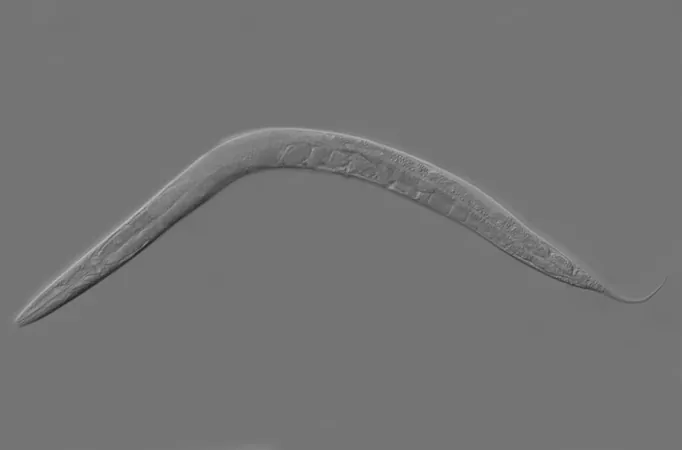
Surprising Insights: How Worms Prioritize Mating Over Hunger - What This Means for Understanding Memory in Humans
2024-11-14
Author: Olivia
Groundbreaking Study Overview
In a groundbreaking study, researchers at University College London (UCL) have discovered that even simple organisms like worms can experience the tug-of-war between conflicting memories—specifically, those tied to mating and starvation. Published in *Current Biology*, the findings reveal how an animal’s drive for reproduction can overshadow its fundamental need for food, providing new insights into the underlying mechanisms of memory and behavior.
Research Focus on C. elegans Roundworms
The study focused on male C. elegans roundworms, minuscule creatures that measure just 1mm in length and are frequently used in scientific research due to their simple nervous system. The researchers exposed these worms to an odor that elicited contrasting memories: one associated with the pleasure of mating, the other linked to the pain of starvation. This unique setup aimed to delve deeper into how the worm's brain discerns whether an encounter is beneficial or detrimental and how that shapes its behavioral responses.
Experiment Findings
In a series of experiments, the team conditioned the worms to develop both positive and negative associations with the odor. They found that upon smelling it, both memories—those of intense attraction or repulsion—were triggered simultaneously. However, only the positive memory prevailed, guiding the worms to approach the odor that was previously linked to starvation. This preference shift indicates that the allure of mating rewards can triumph over the threat of hunger, providing a stunning example of how animals prioritize different experiences.
Insights from Researchers
The co-first author of the study, Dr. Laura Molina-García, observed, 'This reveals that even in the simplest brains, the capacity to hold conflicting memories exists. The worms were able to learn and adapt by favoring mating as a more immediate need over their hunger.'
Dr. Arantza Barrios, the lead author, noted, 'Our findings contribute to understanding not just animal behavior, but human psychology too. Disorders like post-traumatic stress disorder (PTSD) involve similar mechanisms where latent memories can negatively affect one’s behavior.'
Significance of the Research
This research paints a vivid picture of how memories in the brain are not just static records; they interact dynamically and can influence decisions based on context and experience. The identification of brain circuits involved in these conflicting associations opens up exciting possibilities for further investigations into health conditions resulting from maladaptive memory processing.
Implications for Human Psychology
By decoding the complexities of memory and behavior in worms, scientists aspire to glean insights applicable to humans, potentially leading to novel approaches in treating mental disorders where conflicting memories play a detrimental role.
Conclusion
In conclusion, this intriguing study not only sheds light on the evolutionary strategies of survival but also emphasizes the importance of understanding memory processes. As we continue to unravel the mysteries of both simple and complex brains, we inch closer to addressing some of the most pressing mental health challenges facing society today.









 Brasil (PT)
Brasil (PT)
 Canada (EN)
Canada (EN)
 Chile (ES)
Chile (ES)
 España (ES)
España (ES)
 France (FR)
France (FR)
 Hong Kong (EN)
Hong Kong (EN)
 Italia (IT)
Italia (IT)
 日本 (JA)
日本 (JA)
 Magyarország (HU)
Magyarország (HU)
 Norge (NO)
Norge (NO)
 Polska (PL)
Polska (PL)
 Schweiz (DE)
Schweiz (DE)
 Singapore (EN)
Singapore (EN)
 Sverige (SV)
Sverige (SV)
 Suomi (FI)
Suomi (FI)
 Türkiye (TR)
Türkiye (TR)